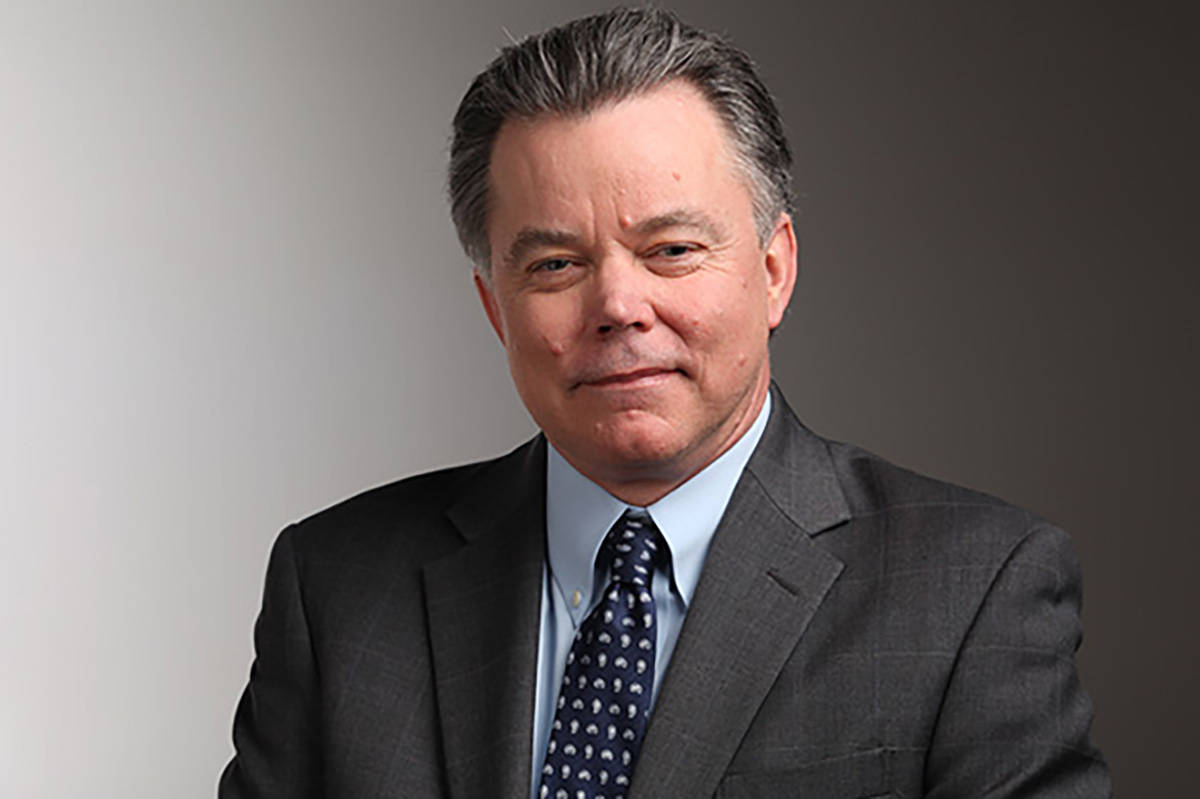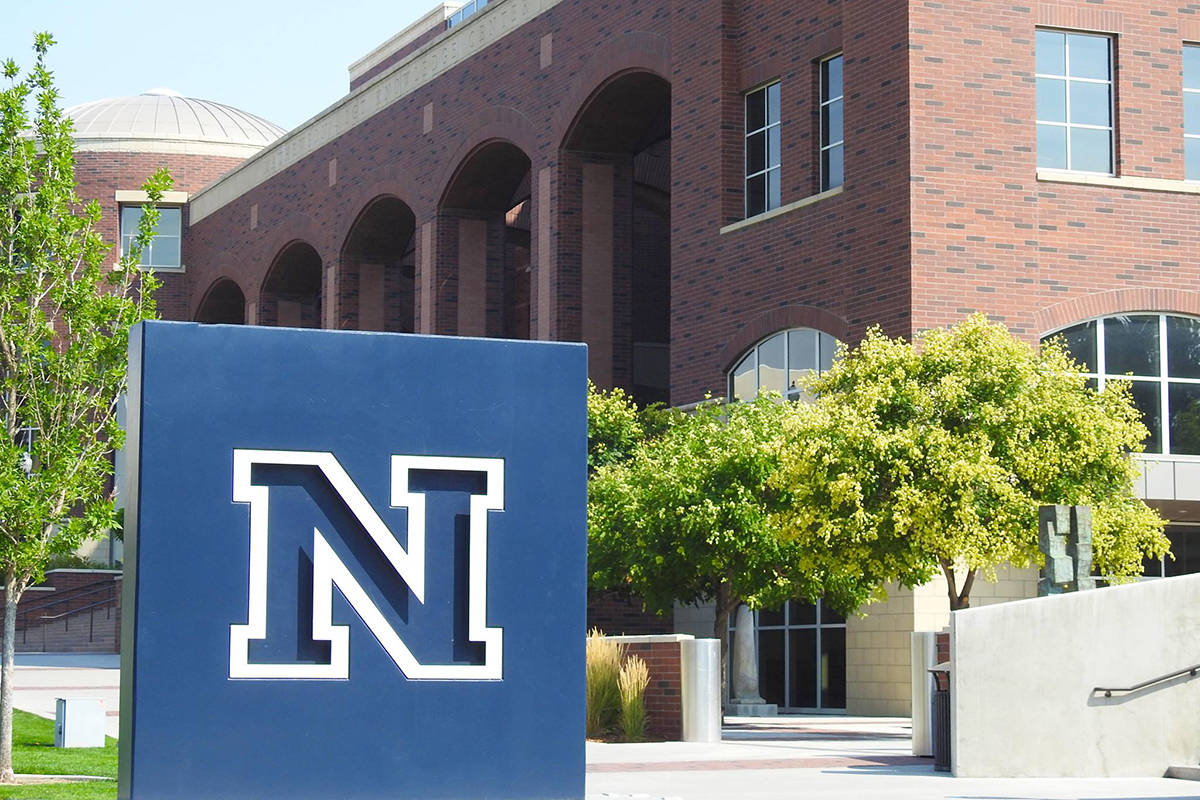UNR faculty oppose ‘HyFlex’ teaching plan for fall
The University of Nevada, Reno’s chapter of the Nevada Faculty Alliance is voicing opposition to a university plan to alternate which students attend large lecture classes in person this fall due to the COVID-19 outbreak.
The chapter released a statement earlier this month and emailed the signature page to faculty June 6. It included 156 signatures as of Tuesday.
Current plans — which are contingent on Nevada System of Higher Education approval and which phase of reopening the state is in — call for classes with more than 200 students to be taught online. Those with fewer will be taught in a “HyFlex” or alternate mode of instruction to limit the number of students to no more than 50 percent of classroom capacity.
At UNR — which has about 21,000 students — the faculty alliance is concerned about plans to use HyFlex and wants university administrators to reconsider their decision. In its statement, the alliance says the plan has “a limited pedagogical evidence base.”
“We want to teach our courses well and believe that faculty are in the best position to determine the best method of instruction for their courses consistent with the health and safety of students and themselves,” according to the statement.
The alliance chapter is seeking to gather more than 200 signatures, president John Nolan said Monday.
Students trade off
HyFlex is “where half of the enrolled students would participate in person on one day while the other half participated via Zoom,” UNR Executive Vice President and Provost Kevin Carman wrote in a June 4 letter to faculty and staff. “The two student groups would alternate attending lectures in person.”
Traditionally, HyFlex — an option that a number of colleges and universities nationwide are considering for fall — allows students to choose whether they want to attend in person or online.
HyFlex creates more work for faculty to facilitate and still puts them at risk of exposure to COVID-19 since they’re teaching in person, Nolan said.
A lot of UNR faculty alliance members aren’t in high-risk categories for COVID-19 and would like to get back to in-person teaching, Nolan said, but noted the chapter is concerned about those at high risk or whose family members are.
During a June 8 academic faculty meeting, Carman said he understands and respects the alliance’s request but doesn’t think it’s practical under the circumstances.
Faculty with “extenuating conditions or personal situations” can request to teach remotely this fall, Carman said. “However, we need to maximize responsible face-to-face delivery and we need to be able to provide clear messaging to students and faculty on how we will we be teaching in the fall. If we allow faculty to arbitrarily choose how they want to teach this fall, it will create further confusion to what is already a confusing situation.”
Response from other schools
Sandra Owens, president of UNLV’s Nevada Faculty Alliance chapter, said in a June 10 email to the Review-Journal she spoke with her colleagues at the UNR chapter for additional details and then signed her name in support.
“I also told them that UNLV is known as a commuter school in some respects” and that UNLV is taking a softer approach by allowing faculty to choose to teach classes remotely, she said.
As of now, UNLV plans to offer all fall lecture courses with 75 or more students remotely, spokesman Tony Allen said in a Monday email to the Review-Journal. “We’re also asking departments to move additional courses online in consultation with faculty and based on risk mitigation and suitability for online instruction.”
Instructors with “individual or family-related health vulnerabilities” can request to have one or more of their classes switched to remote instruction, he said, noting the provost’s office has also consulted with Faculty Senate to “better understand faculty members’ preferences for instruction.”
Luis Ortega, president-elect of the College of Southern Nevada’s chapter of the Nevada Faculty Alliance, said in a written statement June 11 to the Review-Journal: “CSN-NFA’s first priority in any planning for returning to campus is the safety of faculty and students. In this light, we believe that nearly all classes should be online until the pandemic is over or proven vaccines and treatments are readily available. Classes that must be held in live sessions should be done with maximum attention to protecting all participants’ health.”
Margo Martin, vice president of academic affairs at CSN, said in a Monday statement to the Review-Journal that the college isn’t using a HyFlex model for fall semester but will offer more online classes than ever before.
CSN is also encouraging faculty “to have a robust online component to their classes, no matter what course delivery modality they are offering,” she said.
CSN has heard from many students and faculty who are ready to come back to campus, Martin said, noting a lot of students learn more effectively in person.
Contact Julie Wootton-Greener at jgreener@reviewjournal.com or 702-387-2921. Follow @julieswootton on Twitter.












































